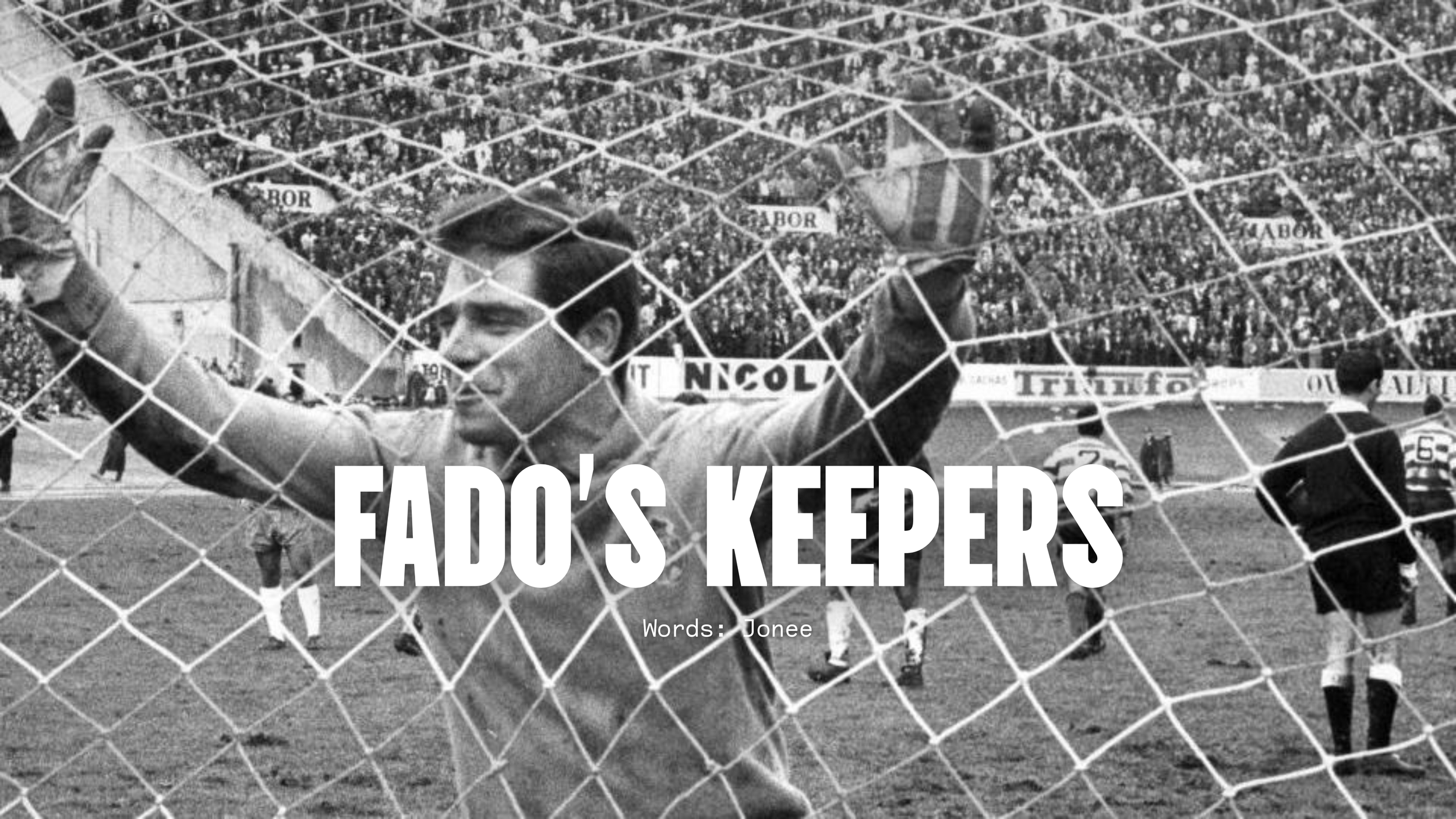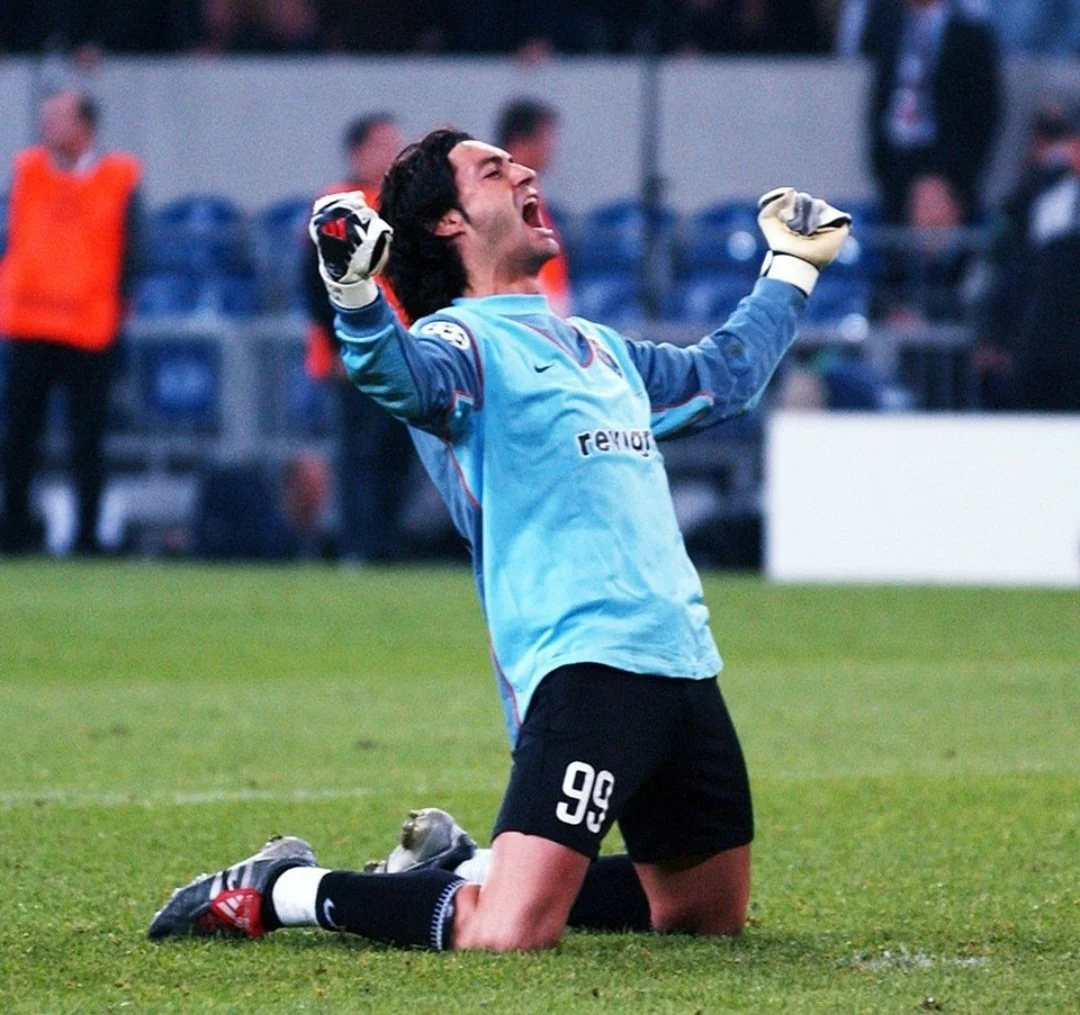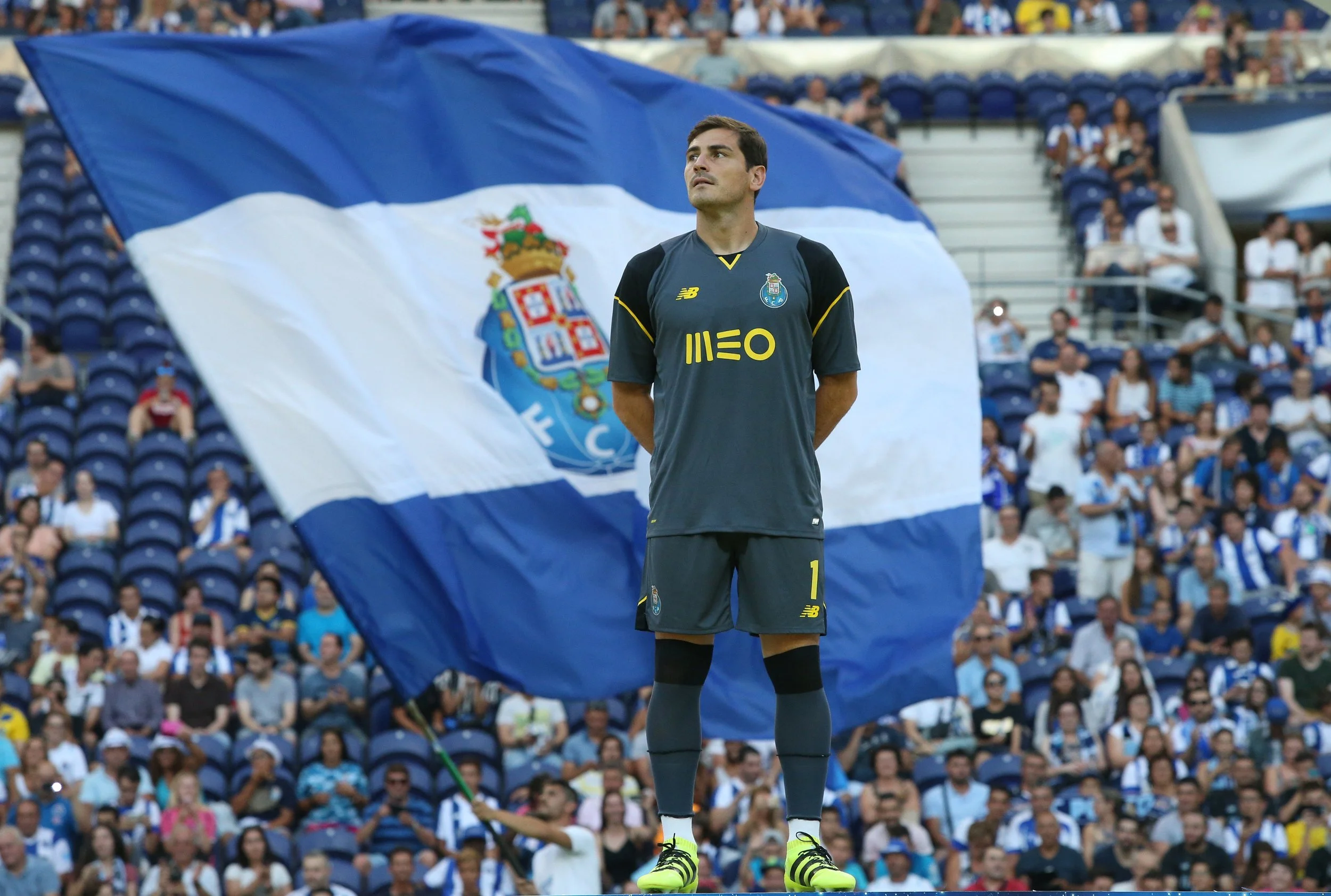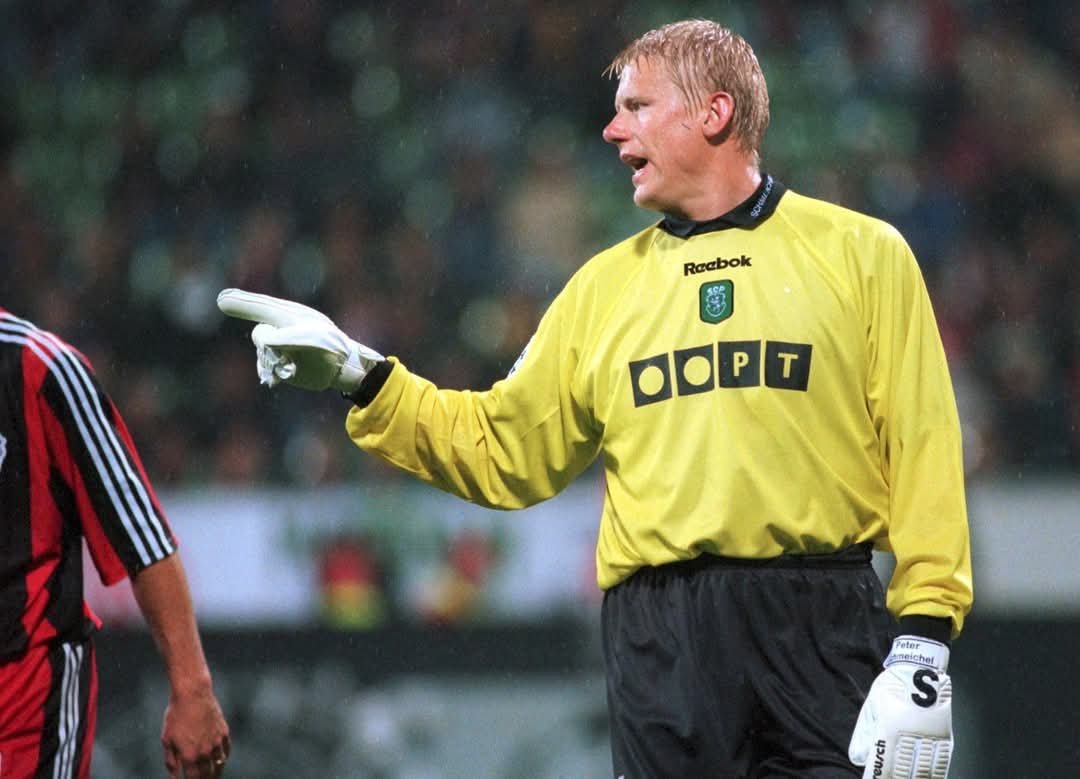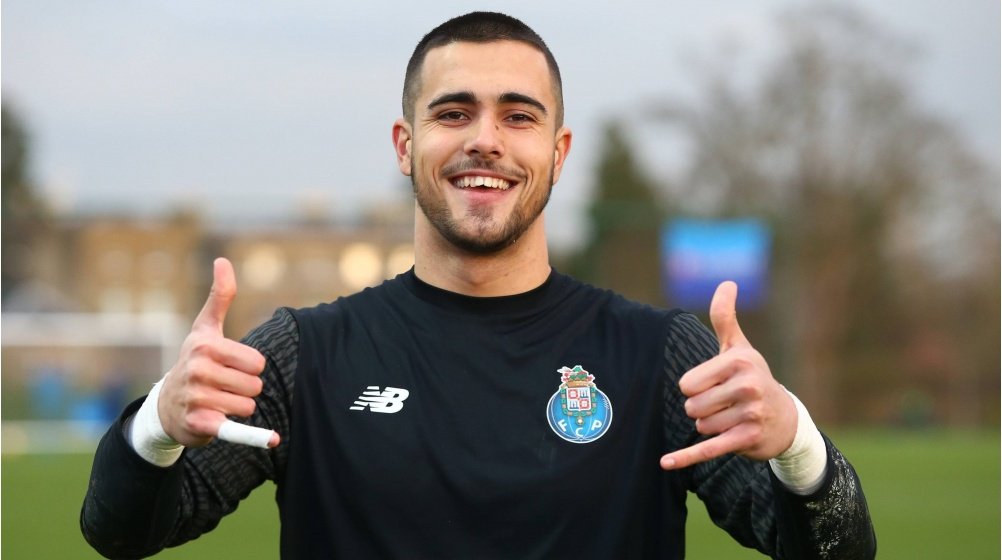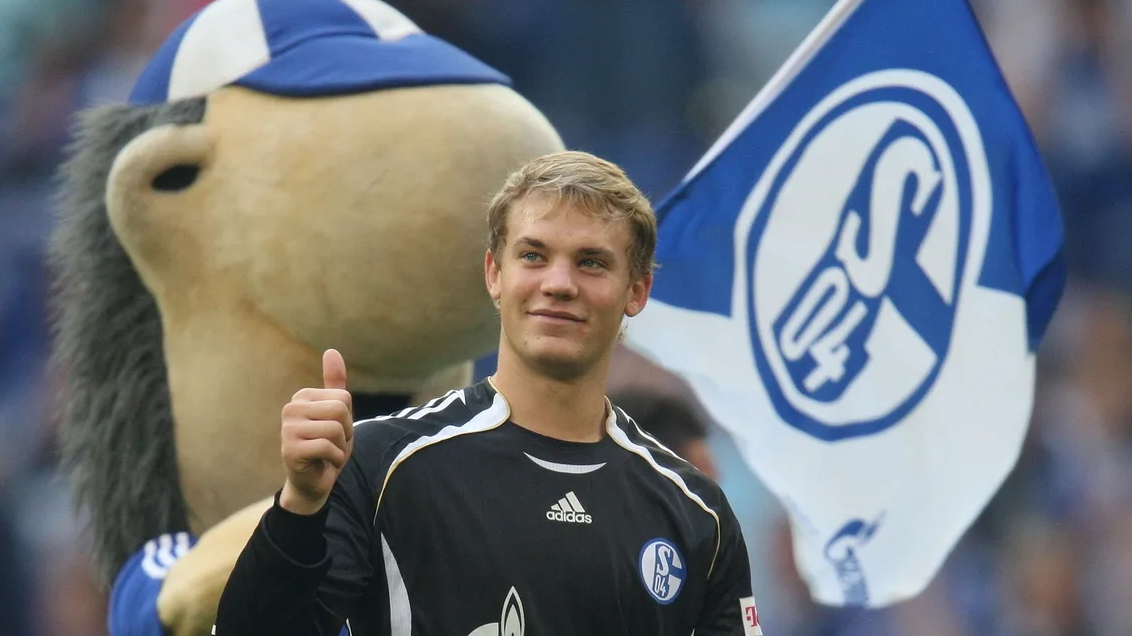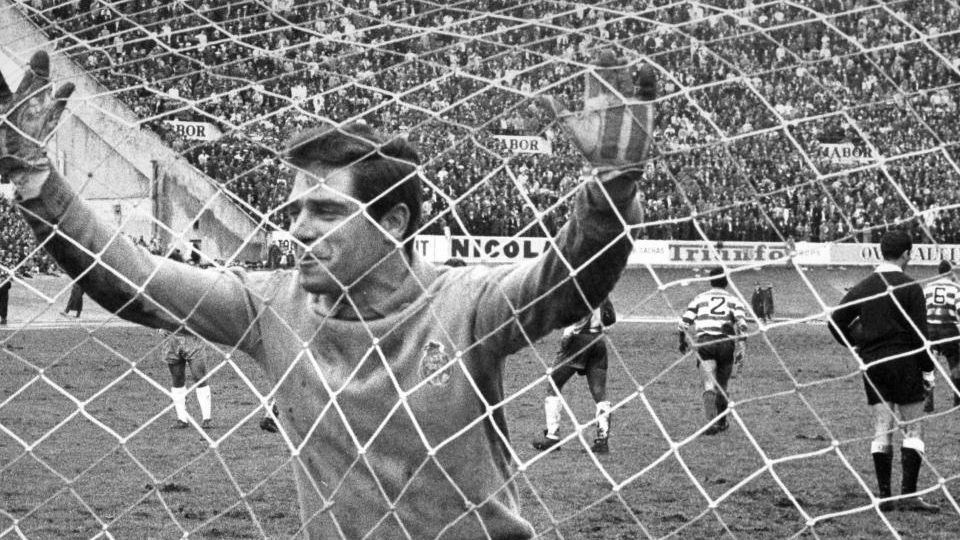
Words by Jonee | Published 23.04.2025My fascination with goalkeepers might trace back to my years hurling myself across handball courts. Or perhaps it’s my lifelong draw to the unconventional, the figures who defy the norm.
Goalkeepers are my footballing obsession. They’re the soul of the team, the unspoken force that shapes a squad’s identity. Change the goalkeeper, and the entire dynamic shifts. Yet, fans clamour for the shirts of strikers, midfielders, or defenders, overlooking the one player who holds the team’s fate in their gloves. A goalkeeper’s personality mirrors the squad’s spirit: a fiery, unpredictable keeper fuels a flamboyant, attacking machine, whilst a cool-headed one anchors a patient, disciplined unit. They are the team’s truest reflection.
I’m a man of straightforward tastes: music cranked to eleven, steak cooked medium-rare, beer strictly Germanic or Belgian, and goalkeepers with that elusive je ne sais quoi. They need character, a spark you can feel the moment they stride onto the pitch—a glare, a gesture, or a presence that commands respect. A goalkeeper without personality is like a song without rhythm; it might function, but it doesn’t resonate.
Portuguese football is a global powerhouse, not for its trophies but for its uncanny ability to unearth and export talent to Europe’s elite leagues. The Big Three—FC Porto, SL Benfica, and Sporting CP—are masters of this craft, scouting and nurturing players each season who inevitably depart for wealthier clubs in the top leagues on the continent. For over two decades, this cycle has sustained Portuguese football, as clubs adapt to a world where financial power tilts towards the Premier League or La Liga. But there’s one position where Portugal bucks this export trend: goalkeepers.
We don’t just produce keepers; we attract them like a magnet, drawing the worlds’ finest to our shores. Sometimes, it feels like every great goalkeeper has, at some point, called Portugal home—a phenomenon as remarkable as it is unique.
Vitor Baia, one of Porto’s favourite sons.
Photo Credit: Getty ImagesGoalkeepers from every corner of the globe have graced Portuguese pitches. African stars from Nigeria and Morocco, Asian talents from Japan and Iran, South American legends from Brazil and Argentina, and Europe’s most celebrated names have all left their mark. Sporting CP boasted Peter Schmeichel, while Benfica welcomed Michel Preud’homme and Júlio César. Up north, FC Porto saw Iker Casillas, one of the greatest goalkeepers of all time, guard its net. Three of the finest goalkeepers of the past 30 years played in Portugal, but the list stretches far beyond. Jan Oblak, Ederson, Peter Rufai, Józef Młynarczyk, Vítor Baía, and countless others have woven their stories into Portuguese football’s tapestry. Some arrived as raw prospects, others at the peak of their powers, and a few in the final chapters of storied careers. All left memories—saves that defied physics, moments that became legend.
But what makes a goalkeeper special?
They’re the only player amongst 11 bound by a unique set of rules; permitted to use their hands, tasked with protecting a sacred 24-by-8-foot rectangle. That alone sets them apart, but it’s their role as the team’s emotional core that elevates them.
Every legendary squad had a goalkeeper who embodied its ethos. The debate over the greatest of all time is a labyrinth of personal biases, shaped by era, loyalty, and style. Yet, Iker Casillas’ name rises to the top, endorsed even by Gianluigi Buffon, another colossus of the position. When one legend anoints another, you listen.
Casillas is synonymous with Real Madrid’s success and Spain’s World Cup triumph, but for FC Porto fans, he’s ‘San Iker’, the serene maestro who graced our goal with unearthly reflexes. His bond with Porto was profound. He fell in love with the city and the club’s fierce pride. That connection proved lifesaving when Porto’s medical staff intervened during a health scare that ended his career. Casillas’ 20-year reign, studded with every major trophy, was already etched in stone. As a young fan, I’d have scoffed at the idea of him joining Porto— my club, yes, but not a destination for global icons. Football, though, has a knack for rewriting scripts.
San Iker during his time at Porto.
Photo Credit: AlamyPeter Schmeichel, the mercurial Dane who ruled Manchester United and Denmark’s nets, brought his larger-than-life presence to Sporting CP. From his first match, he electrified the Alvalade with acrobatic saves, bellowing commands, and a glare that could freeze strikers. Even as a Porto supporter, I couldn’t help but admire Schmeichel’s blend of rage and passion, a force that galvanised every teammate. His trophy cabinet—club titles, a Euro 1992 crown—only hints at his impact. Seeing him in Portugal, in a rival’s colours no less, was a privilege.
Benfica’s goalkeeping lineage is equally storied. Michel Preud’homme, the Belgian whose agility and positioning defied his modest height, became a legend for the Encarnados. Júlio César, the Brazilian who anchored José Mourinho’s Champions League-winning Inter Milan, brought South American flair to Lisbon. His style captured the beautiful chaos of his craft. Both keepers carved their names into Benfica’s folklore.
Whilst coaching can mould a great defender or midfielder, three roles demand a spark only birth can provide: the clinical striker, the visionary attacking midfielder, and, above all, the goalkeeper. Portugal doesn’t just attract fading stars; it nurtures the next generation. Jan Oblak, now Atletico Madrid’s immovable force, honed his craft at Rio Ave before shining at Benfica. Ederson of Manchester City emerged from Benfica’s youth ranks. These are no flukes—Portuguese clubs have a sixth sense for spotting goalkeeping talent, a skill that keeps the nation’s football solvent and vibrant.
Every Portuguese club, from giants to minnows, has its goalkeeping hero. Ask fans of Boavista, Braga, or Vitória de Guimarães, and they’ll regale you with tales of a keeper who, for one unforgettable season, made their net a fortress. My first was Józef Młynarczyk, the Polish titan whose heroics propelled Porto to the 1987 European Cup. Then came Vítor Baía, the reflex-driven prodigy who defined my youth. His impossible saves carried Porto to UEFA Cup and Champions League glory. His stint at Barcelona, marred by injuries, left Porto adrift; no replacement could fill his void. When Baía returned, order was restored, and with him between the posts, we conquered Europe again. Later, Hélton, the calm yet erratic Brazilian, delivered a Europa League title with his quicksilver reactions. And then, improbably, Iker Casillas arrived. Watching a deity of the game wear Porto’s colours felt like a dream.
Peter Schmeichel during his time at Sporting CP.
Photo Credit: The GuardianToday, Diogo Costa guards Porto’s net. I travelled to watch him at 13, urged by a scout friend who insisted to me, ‘This kid’s special.’ Even then, his command, his poise, hinted at greatness. Now, he’s a cornerstone, a home-grown talent carrying Porto’s goalkeeping torch. Elsewhere in Portugal, from Liechtenstein’s Peter Jehle to Japan’s Shuichi Gonda, goalkeepers have become cult heroes at every club, whether they are giant or minnow.
It’s not just their unique rules or their role as the last line of defence. It’s the goalkeeper psychology—the solitary burden they carry. A striker can miss five shots and still be a hero with one goal. A goalkeeper makes five saves but concedes once, and the spotlight burns them. They stand alone; often idle for long stretches, only to face moments where a single error can unravel a match, or even destroy their career. That pressure forges a distinct mind-set: part warrior, part philosopher. They must exude confidence, even arrogance, to survive the scrutiny, yet remain humble enough to learn from mistakes. This duality—bravado and introspection—makes them football’s most human figures.
I’ve seen this in action. At a Porto youth match, I watched a teenage keeper berate his defenders after a goal, only to later sit quietly, replaying the moment in his mind. That intensity, that self-reflection, is what separates the good from the great. Schmeichel’s roars weren’t just theatrics; they were a shield, a way to command respect and mask the weight of expectation. Casillas’ calm, by contrast, was a quiet defiance, a signal that no storm could unsettle him. Portugal’s ability to attract such personalities—keepers who thrive under pressure—speaks to its footballing culture, one that values not just skill but character.
Porto’s currently goalkeeper, Diogo Costa.
Photo Credit: TransfermarktI divide goalkeepers into three archetypes.
First, the ‘naturals’, born for the role: Casillas, Buffon, Vítor Baía, Jan Oblak, Diogo Costa, Alisson. Their saves feel effortless, their presence serene yet commanding.
Second, the ‘aggressors’, whose intensity could dominate any position: Oliver Kahn, Schmeichel, Jens Lehmann, German Burgos. Thank the stars they chose goalkeeping, or we’d fear them elsewhere.
Third, the ‘erratics’, brilliant one day, baffling the next: David James, Ederson, Fabien Barthez, Hélton, Víctor Valdés. Their highs are sublime, their lows a reminder of their humanity.
The goalkeeper-libero forms a fourth, modern category, led by Neuer and echoed by the likes of Ederson, Marc-André ter Stegen, and Costa. These keepers blur lines between defence and attack, redefining what’s possible. Each archetype thrives in Portugal, from Schmeichel’s ferocity at Sporting to Costa’s poise at Porto, a testament to the league’s diversity and versatility.
My favourites? Vítor Baía, for the nostalgia of my youth, his saves etched in my memory like family photos. Edwin van der Sar, for his elegance, a Dutch master who made the impossible look routine. And Neuer, for shattering the mould, turning goalkeeping into an art. I’d love to hear yours—every fan has their heroes, their reasons rooted in moments only football can create.
Growing up in Portugal, football was more than a game; it was a language, a way to connect. Goalkeepers were my lens into that world. I’d mimic Baía’s dives in the back garden, gloves too big for my hands, dreaming of one day standing between the posts. Years later, watching Casillas at the Estádio do Dragão, I felt that childhood awe return. He wasn’t supposed to be here, not a legend of his stature, yet there he was, saving penalties with that same calm I’d seen on TV as a kid.
A young Manuel Neuer during his time at Schalke 04.
Photo Credit: BundesligaTo be a goalkeeper is to embrace solitude, to stand ready when the world watches. One moment of brilliance can define a career, while one mistake can haunt it.
Yet they persist, driven by a courage that demands respect. Portuguese football, with its knack for attracting and nurturing these gatekeepers, is a testament to that spirit. From Casillas to Schmeichel, from Oblak to Costa, Portugal has been an oasis for goalkeepers of every stripe. Some arrive as legends, others leave as such, but all find a chance to write their name in football’s endless story. As long as fans like me marvel at their craft, the goalkeeper will remain football’s soul, its most human hero.
Here’s to the next save!


